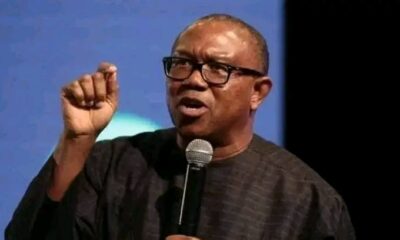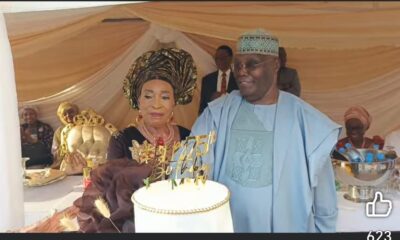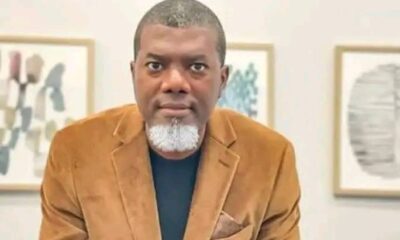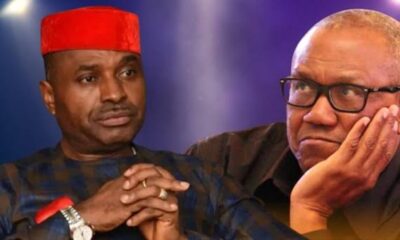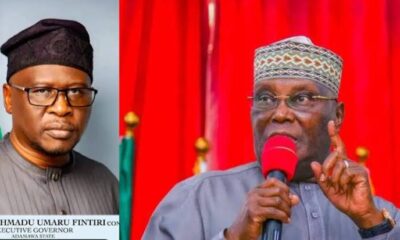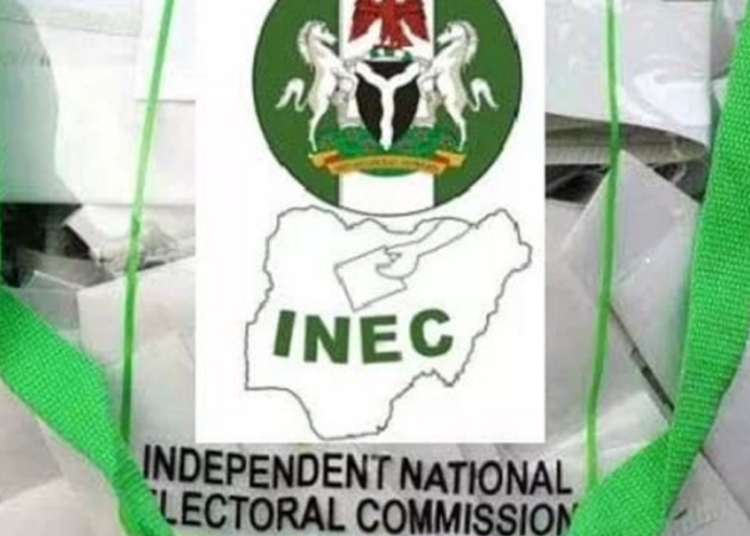Politics
2027 : Atiku, Obi ready for merger – Ex-VP ally
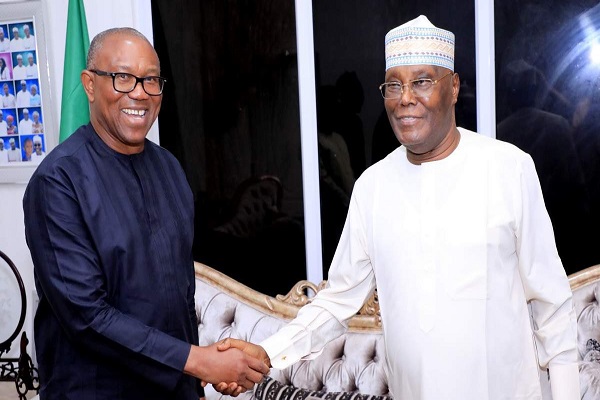
A close loyalist of the former Vice President Atiku Abubakar has disclosed that the Peoples Democratic Party (PDP) is now open to collaborating with Labour Party’s 2023 presidential candidate, Peter Obi, as part of efforts to unseat President Bola Tinubu in the 2027 presidential race.
Atiku, who placed second in the last presidential election with 6,984,520 votes, has consistently emphasized his commitment to building a strong opposition capable of confronting the All Progressives Congress in the next election cycle.
With internal dissent brewing within the APC and opposition parties gaining traction, President Tinubu faces mounting challenges to securing a second term. Notably, former Attorney General Abubakar Malami and ex-Secretary to the Government of the Federation Babachir Lawal have distanced themselves from the ruling party.
Former Kaduna State Governor Nasir El-Rufai also recently announced his departure from the APC, openly criticizing Tinubu’s leadership and joining the Social Democratic Party. El-Rufai has since urged Nigerians across party lines to unite against the ruling party in 2027.
His defection has fueled speculation of a possible political realignment, with sources close to Atiku suggesting that behind-the-scenes coalition talks are already underway.
According to a report by The PUNCH on Friday, an Atiku associate, who requested anonymity because “It is too early to reveal much for now,” confirmed ongoing efforts to unite key opposition figures.
“There is no doubt that they have learned their lessons and are ready to work together. They now realise that to defeat Tinubu, they cannot go it alone,” the source said.
“Data from the 2023 election shows Atiku won in 12 states with over six million votes, while Obi claimed 11 states and the Federal Capital Territory. Combined, their votes would have clearly surpassed Tinubu’s eight-plus million. That’s why serious meetings are already ongoing, though quietly.”
The source also accused Tinubu of fostering regional divisions, alleging this contributed to El-Rufai’s decision to leave the APC.
“Tinubu is attempting to play the North against the South, assuming he can build a winning coalition. But he’s mistaken — that’s part of why El-Rufai left.”
Meanwhile, Director-General of The Progressive Institute, Dr. Lanre Adebayo, has argued that no opposition party currently possesses the political machinery to defeat Tinubu or the APC in 2027.
Adebayo made the remarks on Thursday during a courtesy visit to the National Assembly, where he briefed Deputy Senate President Jibrin Barau on the institute’s activities.
“2027 is very close,” Adebayo said. “When you look at the Nigerian political environment now, I don’t think we have a party that can challenge the APC. But we must continue working hard to preserve the leadership God has given us.”
He noted that the institute was reviewing the APC’s performance over the past two years as part of efforts to bolster the party’s position.
“We are working under the leadership of Senator Jibrin to ensure that the APC continues to lead and set the direction for the country’s future,” he added.
In response, Barau commended the institute’s progress and praised APC National Chairman Dr. Abdullahi Ganduje for his leadership and dedication to strengthening party structures.
In a related development, the New Nigeria People’s Party has reiterated its openness to forming alliances aimed at challenging Tinubu’s presidency in 2027—provided such efforts align with its vision for governance.
NNPP’s National Publicity Secretary, Ladipo Johnson, said the coalition talks had been part of the party’s strategy since the conclusion of the 2023 elections.
“From the beginning, we said we are open to discussions with individuals and political parties toward 2027. That remains our position,” Johnson said.
However, he stressed that while the party is open to partnerships, it would not compromise its identity.
“Nigerians will soon hear more about our engagements. We remain NNPP. All options are on the table, but we won’t lose our identity.”
Johnson also indicated that the party intends to begin evaluating Tinubu’s administration publicly after it marks two years in office on May 29.
Similarly, African Democratic Congress National Chairman Ralph Nwosu welcomed coalition discussions, underscoring that any alliance must be anchored in integrity and shared values.
“Any coalition rooted in dignity, integrity, and inclusion is worth supporting. If this proposed coalition aligns with those ideals, ADC will be part of it,” Nwosu said.
He criticised Tinubu’s government for fostering division and faulted former Delta State Governor Ifeanyi Okowa for defending his defection to the APC on the grounds of “central government benefits.”
“If this is the kind of democracy our leaders are advocating, it is shameful and irresponsible,” Nwosu added. “Elected leaders in developed countries talk development, not politics.”
The Young Progressive Party also signaled support for a broad opposition alliance but warned against merely recycling old political figures.
YPP National Publicity Secretary Wale Egbeola-Martins said:
“The idea of a grand coalition led by Atiku, El-Rufai, or Babachir Lawal acknowledges the need for change. But it must go beyond rebranding old faces.”
He urged veteran politicians to step aside for a new generation of leaders:
“Nigerians are yearning for new, competent leaders. If this coalition is to succeed, some of the current figureheads must be ready to jettison personal ambition.”
Egbeola-Martins also cautioned against a drift toward one-party dominance, warning that unchecked defections into the APC could weaken democratic checks and balances.
“The wave of defections to APC is concerning. It weakens checks and balances and endangers political pluralism,” he said. “Our democracy thrives on ideological diversity and a robust opposition.”
-
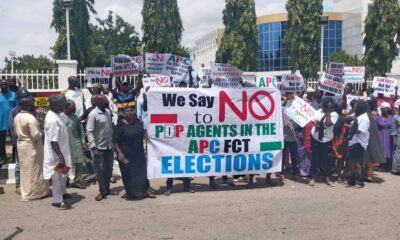
 National News23 hours ago
National News23 hours agoAPC members storm secretariat in Abuja, accuse Wike of hijacking party
-
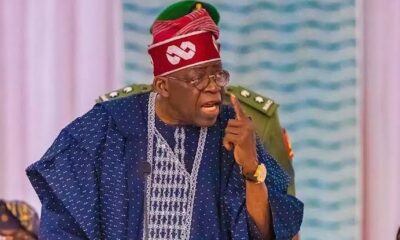
 National News1 day ago
National News1 day agoBreaking: Tinubu postpones Kaduna trip, heads to Benue to address deadly crisis
-

 National News1 day ago
National News1 day ago“Disconnected, disgraceful,” Presidency slammed over response to Benue killings
-

 National News1 day ago
National News1 day agoTinubu orders crackdown on killings in Benue
-
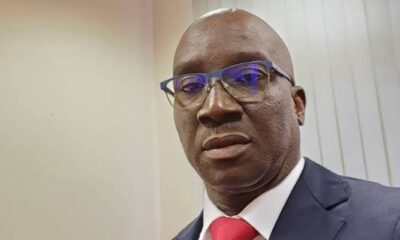
 Metro News23 hours ago
Metro News23 hours agoOkpebholo approves return of schools to missionary groups
-
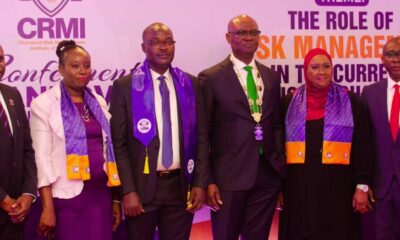
 Business2 days ago
Business2 days agoFidelity Bank boss, Kevin Ugwuoke emerges President Risk Managers Association
-
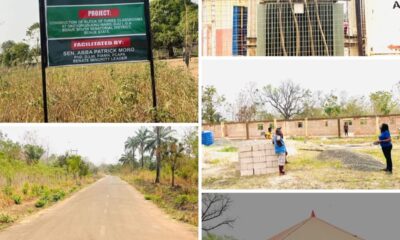
 Opinion5 hours ago
Opinion5 hours agoAbba Moro: 6 Years of impactful leadership and unmatched development in Benue South
-

 Sports2 days ago
Sports2 days agoTer Stegen agrees to join Galatasaray

